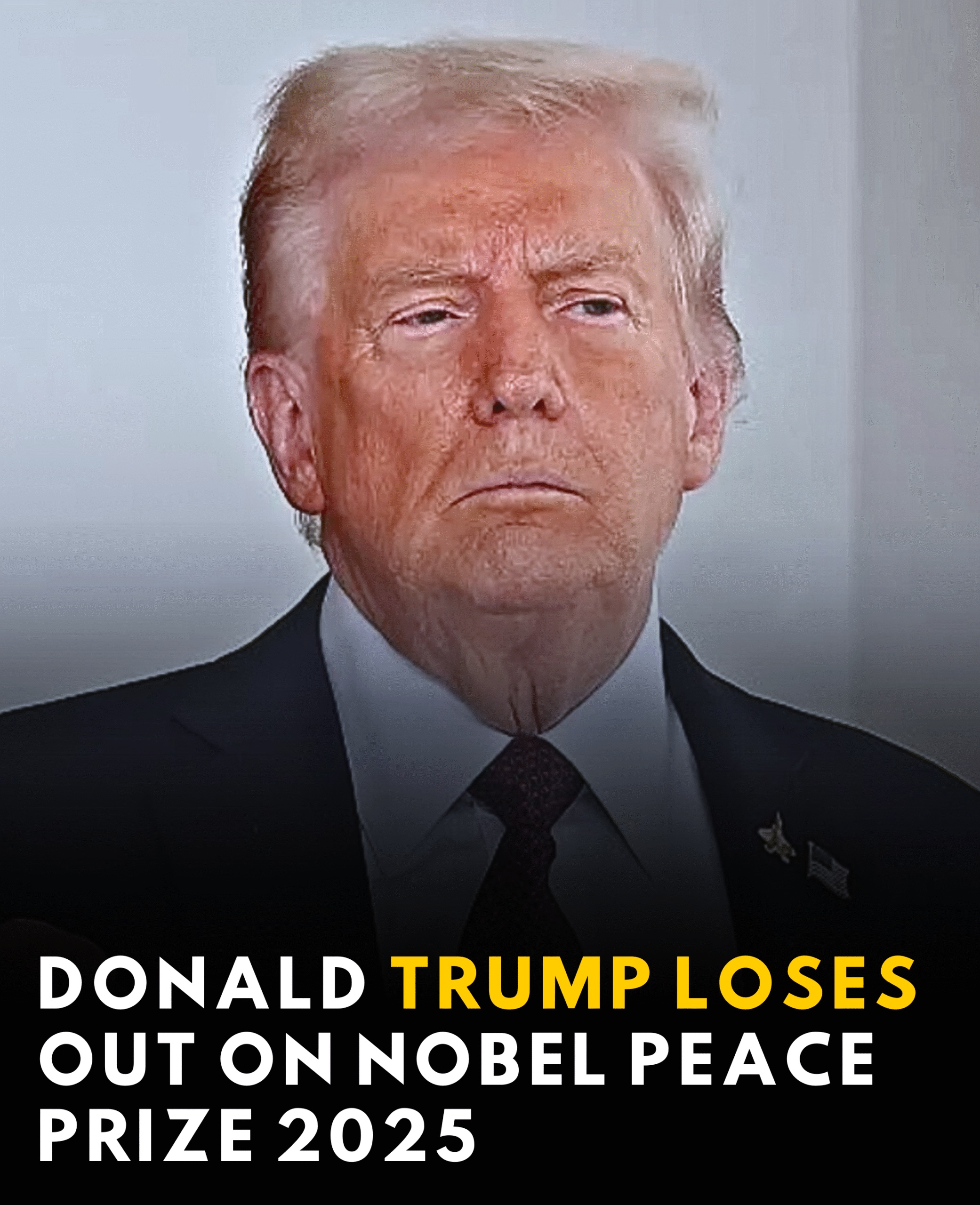
Venezuelan opposition leader María Corina Machado won the 2025 Nobel Peace Prize on Friday, a decision that capped weeks of speculation and shut the door on U.S. President Donald Trump’s high-profile courtship of the award. Announcing the choice in Oslo, the Norwegian Nobel Committee cited Machado “for her tireless work promoting democratic rights for the…
Venezuelan opposition leader María Corina Machado won the 2025 Nobel Peace Prize on Friday, a decision that capped weeks of speculation and shut the door on U.S. President Donald Trump’s high-profile courtship of the award. Announcing the choice in Oslo, the Norwegian Nobel Committee cited Machado “for her tireless work promoting democratic rights for the people of Venezuela and for her struggle to achieve a just and peaceful transition from dictatorship to democracy,” wording that underscored the committee’s focus on civil resistance under authoritarian rule. The prize—worth 11 million Swedish kronor—will be presented in Oslo on December 10, the anniversary of Alfred Nobel’s death.
The selection placed the spotlight firmly on Venezuela’s embattled democracy movement and on a figure who has spent years mobilising support at home and abroad despite bans, threats and harassment by the government of Nicolás Maduro. Machado, 58, a former legislator and founder of the civic group Súmate, rose to renewed prominence after winning the opposition’s 2023 primary before being barred from the 2024 presidential ballot, forcing the coalition to shift behind a substitute candidate amid intensifying repression. In its coverage, the Associated Press noted that Machado continued her work while in hiding and that protests around the disputed vote were met with crackdowns that left multiple people dead.
The committee’s chair, Jørgen Watne Frydnes, framed the award as recognition of democratic resilience in a darkening regional landscape. Ahead of the announcement, he told Reuters that “all politicians want to win the Nobel Peace Prize,” but stressed the committee’s independence from political pressure. That message acquired extra edge this year because the run-up to Friday had been dominated by Trump’s repeated public assertions that he deserved the honour.
Trump’s pursuit of the prize had become part of his political narrative long before the 2025 cycle. In June he said, “They won’t give me a Nobel Peace Prize because they only give it to liberals,” a line he returned to in recent weeks even as he claimed credit for ending or mediating a string of conflicts. On Thursday, the day before the announcement, he told reporters he would be fine with a snub: “Whatever they do is fine. I know this, I didn’t do it for that. I did it because I saved a lot of lives.” He has also alternated between insisting he merits the award and predicting he would not get it: “Will you get the Nobel Prize? Absolutely not.” Those statements, recorded across interviews and posts, set expectations for both outcome and reaction.
Friday’s decision came as the administration pointed to a breakthrough on one of the world’s deadliest conflicts. Israeli officials this week approved a first-phase ceasefire and hostage-exchange framework with Hamas that Trump and U.S. mediators said could end the two-year Gaza war. But Reuters reported that the Nobel Committee had taken its final decision before that development, a timeline consistent with the prize’s long vetting process and early-year nomination cutoff. As a result, even advocates who argued the Middle East deal should bolster Trump’s case acknowledged it was too late for the 2025 award.
Process details also cut against claims that real-time diplomacy would move the committee on the eve of the announcement. The Norwegian Nobel Institute says nominations for this year closed on January 31 and that, while committee members can add names at their first meeting, the deliberations that follow are insulated from public lobbying and the institution will neither confirm nor deny who was nominated until 50 years have passed. In March the institute said it had received 338 valid nominations—244 individuals and 94 organisations—for the 2025 prize.
While the committee’s work is confidential, the public politics around it were anything but. Norway’s press chronicled steps taken by officials to brace for a potential backlash if Trump did not win, as allies amplified his case in U.S. media and foreign leaders publicised letters nominating him. In a preview piece on Thursday, the Guardian reported that Norwegian analysts expected pointed rhetoric but no impact on the committee’s independence, a theme mirrored in Reuters’ assessment that this year’s award was “overshadowed by Trump” but ultimately decided on the merits of the laureate’s record.
Machado’s record, as sketched by the Nobel institutions and international outlets, centres on years of civic organising and election monitoring, a refusal to leave Venezuela despite escalating risks, and a public insistence that democratic transitions are possible without violence. Time noted that she received the European Union’s Sakharov Prize and the Václav Havel Human Rights Prize in 2024, honours widely viewed as precursors to recognition in Oslo. The committee presented her as a “brave and committed champion of peace,” language that linked free institutions to the prevention of conflict, a conceptual through line in many past peace prizes.
The award also arrives at a delicate moment for Venezuela. After authorities invalidated Machado’s candidacy last year, the opposition rallied around a stand-in; clashes, arrests and court manoeuvres marred the subsequent election period and its aftermath. The AP reported that dozens were detained and that protests against the result turned deadly, while rights groups pressed for releases and new talks. By elevating Machado, the committee placed a global spotlight back on those events and on the unresolved question of a peaceful transition in Caracas.
In Washington, Trump’s team and supporters had treated the prize as both validation and leverage. Republican lawmakers publicly urged the committee to honour him, citing the 2020 Abraham Accords and more recent diplomatic forays; foreign politicians and leaders also touted nominations on his behalf. But the Nobel organisations make clear that nominations are neither endorsements nor votes. “To simply be nominated is therefore not an official endorsement or honour,” the institute says in its public guidance, part of a standing effort to dampen the optics of nomination campaigns.
Trump’s fascination with the prize is longstanding and often personal. He has compared his lack of recognition to Barack Obama’s 2009 win and, at rallies and in interviews, folded the committee into a list of institutions he says are biased against him. Time recapped that posture this week, quoting his June remark about “liberals” and his more recent line that a snub would be “fine,” offered even as surrogates made the opposite case on cable news. Newsweek’s live coverage on Friday morning framed the outcome plainly: the prize went to Machado; Trump did not win.
Beyond the headline, the committee’s timing and criteria help explain why. The nomination window predates most of the diplomatic moves Trump has highlighted since returning to office, and experts interviewed by Reuters said the panel tends to prize durable, documented contributions to peace over short-term breakthroughs. Even supporters of the new Gaza framework acknowledged the award’s calendar would not allow last-minute developments to tip the scales. The committee’s public materials emphasise that democracy and human rights work—especially at personal risk—often meet the standard Alfred Nobel envisioned.
Machado’s own first words after the announcement were cast in collective terms, according to live updates from international outlets: the prize, she said, belongs to an “entire movement” that has pressed for fair elections and basic freedoms despite bans and beatings. That posture aligns with the committee’s statement and with her record of tying individual recognition to a broader civic struggle. The optics—a laureate in hiding honoured in Oslo—made an implicit argument about what kinds of courage the prize seeks to elevate.
Trump, for his part, had seeded multiple responses in advance: grievance, prediction and dismissal. He has alternated between arguing that the committee is hostile to him and saying he does not need its validation. On Thursday he offered the latter note, insisting his recent diplomatic push was not undertaken for the sake of a prize. Whether he issues a fuller reaction after Friday’s ceremony, the committee’s decision sits now alongside his own words and the record of a laureate whose work is far from ceremonial.
The prize announcement closed a week of Nobel disclosures that began in Stockholm with awards in medicine, physics, chemistry and literature and ended, as it always does, in Oslo with the Peace Prize. The Nobel institutions said coverage of Friday’s event would be followed by traditional December ceremonies in Norway and Sweden. For Machado, that ceremony carries both honour and risk; for Trump, it extends a running thread in his public life, a contest for recognition that plays out in his own voice as much as in institutional judgments made far from Washington. What the committee decided on Friday is that the year’s most urgent and exemplary peace work, by its lights, was done by a Venezuelan opposition leader who has insisted that ballots, not bullets, change nations.
If the political noise around the award felt louder this time, the institution’s architecture remained the same. Nominations closed in January; the committee deliberated in private; the chair read a citation on a Friday morning in October; a single name was added to a long roll of laureates. The rest—who lobbied, who predicted, who proclaimed—is part of the story but not the prize. For 2025, that prize belongs to María Corina Machado.



